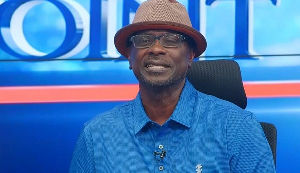US-based Ghanaian lawyer, Professor Stephen Kwaku Asare, has voiced concerns about the Electoral Commission’s (EC) decision to order a rerun of the election at one polling station in the Dome Kwabenya Constituency.
According to him, this decision contradicts the principle that the will of the people is paramount, as consistently affirmed by courts, beginning with the landmark case of Akufo-Addo et al. v. Mahama et al.
He argues that “the ultimate purpose of election results is to reflect the will of the electorate. If the results declared on the training sheet are accurate and verifiable, rejecting them solely because of the medium used is akin to throwing the baby out with the bathwater.”
Such actions, he warns, risk disenfranchising voters and undermining the essence of democracy.
Professor Asare believes the EC’s decision sets a dangerous precedent. While strict adherence to procedure is essential, he emphasizes that the commission must balance procedural integrity with fairness and equity.
"The group GOGO has also expressed deep concern over the EC’s decision to rerun the election at the Abokobi Women’s Development Centre 2 polling station in Dome Kwabenya. This decision, rooted solely in the use of training sheets instead of the official statement of poll, raises significant questions about prioritizing form over substance.
"By rejecting the declaration outright on such a procedural basis, the commission has chosen to “strain at a gnat and swallow a camel.” While adherence to proper forms is crucial for safeguarding electoral integrity, dismissing a declaration without examining the substantive validity of the results undermines public confidence in the process.
"As consistently ruled by courts, beginning with Akufo-Addo et al. v. Mahama et al., the will of the people is paramount and should not be nullified by mere procedural lapses.
"The ultimate purpose of election results is to reflect the will of the electorate. If the results declared on the training sheet are accurate and verifiable, rejecting them solely because of the medium used is akin to “throwing the baby out with the bathwater.” Such actions risk disenfranchising voters and betraying the very essence of democracy.
"Rather than outright rejection, the commission could have opted for rectification—verifying the results and re-declaring them using the correct forms. This approach would have preserved both procedural integrity and the electorate’s trust.
"Unfortunately, the EC’s decision creates the troubling impression that it prioritizes procedural rigidity over ensuring a transparent and equitable process. As the Akan proverb goes, “When the rhythm of the drum changes, the dance steps must adapt.” Electoral processes must remain flexible enough to address human error without undermining the voters’ will.
"Rejecting declarations based on procedural errors without exploring alternative means of verification sets a dangerous precedent. It suggests that technical missteps, no matter how inadvertent, can override the sovereign will of the people—a principle that should be sacrosanct in any democracy.
"Elections are inherently complex, and procedural errors are not entirely avoidable. That is why multiple redundancies are built into the process, providing safeguards to verify and affirm the integrity of results. However, the EC’s decision disregards these safeguards, opting instead for an approach that prioritizes perfection in form over fairness in substance.
"The voters fulfilled their democratic duty and cast their votes in good faith. Their voices should not be disregarded simply because an EC official failed to adhere to proper procedures. As the saying goes, “The fault of one should not ruin the efforts of many.” The responsibility for procedural errors lies squarely with the commission, not with the electorate. Penalizing voters for mistakes beyond their control undermines the principles of fairness and justice that elections are meant to uphold.
"Ultimately, while strict adherence to procedure is vital, the commission must balance this with fairness and equity. A decision that fails to explore options for verification and correction misses this balance entirely.
Da Yie," Professor Asare wrote via Facebook.
Watch some videos from the recent Parliamentary sittings below:
General News of Sunday, 29 December 2024
Source: mynewsgh.com

















